What is the story about?
Robert Munsch has long been a household name, his books stacked on bedside tables and school shelves across the world. From The Paper Bag Princess to Love You Forever, his stories captured the imagination of children and parents alike, offering humour, tenderness and lessons in resilience. Now, at 80, the beloved Canadian author is choosing when and how his life should end.
Diagnosed with dementia in 2021 and also living with Parkinson’s disease, Munsch, an Order of Canada honouree with a star on the country’s Walk of Fame, has been approved under Canadian law for medically assisted dying, commonly known as MAiD. In an interview with The New York Times Magazine, he spoke about what that decision means. "I can’t drive, I can’t ride a bicycle, I can’t write. So it’s been really whittling away on who I thought I was," he said. "My stories, strangely enough, are all there. The stories will be the last thing to go, I think."
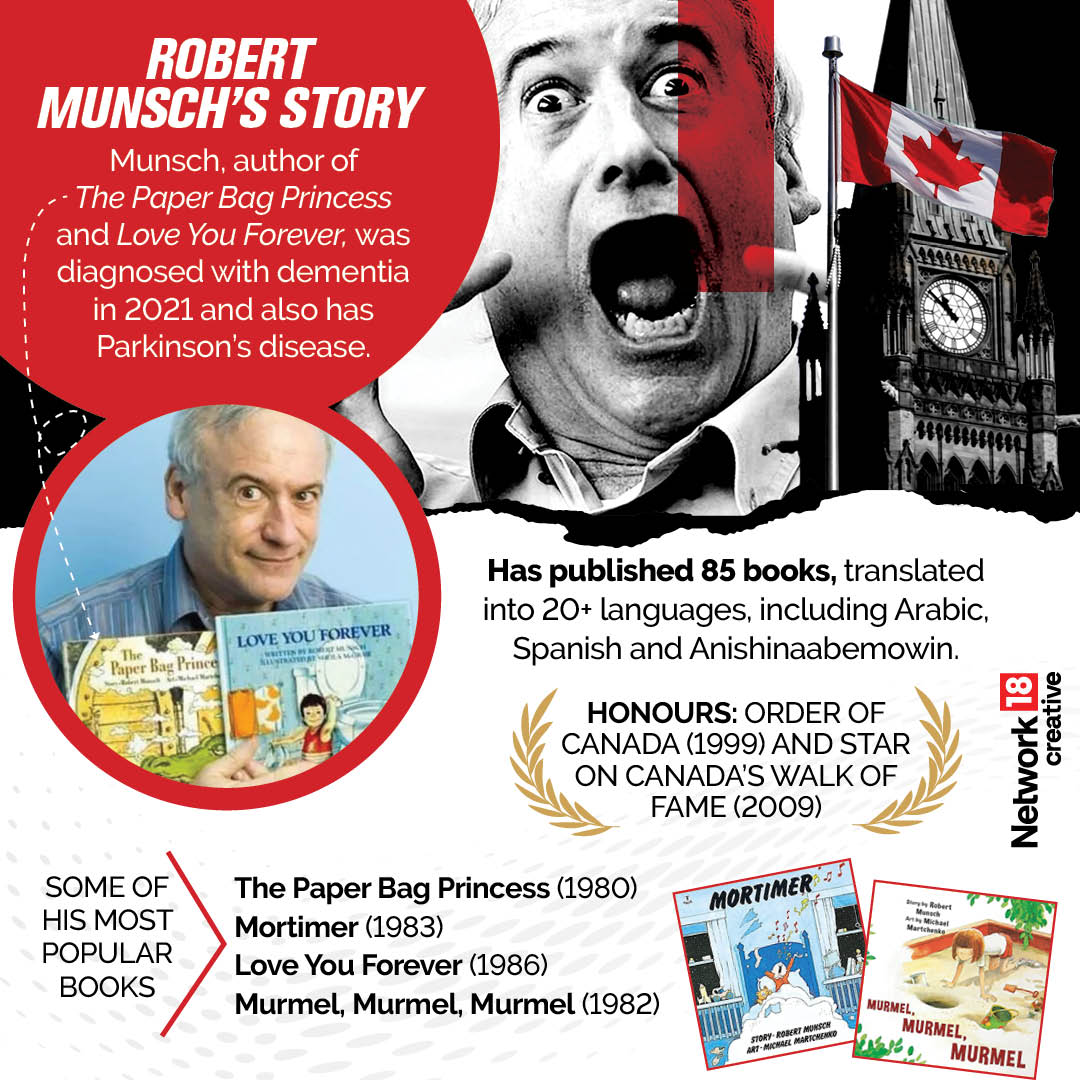
For Munsch, the choice of when to leave will come, as he put it, "when I start having real trouble talking and communicating. Then I’ll know." His decision is influenced in part by watching his brother die of ALS, or Lou Gehrig’s disease.
Euthanasia refers to a doctor actively ending a patient’s life, often through a lethal injection, while assisted suicide allows the patient to administer prescribed medication themselves. Canada permits both, setting it apart from many countries that only allow one or prohibit both.
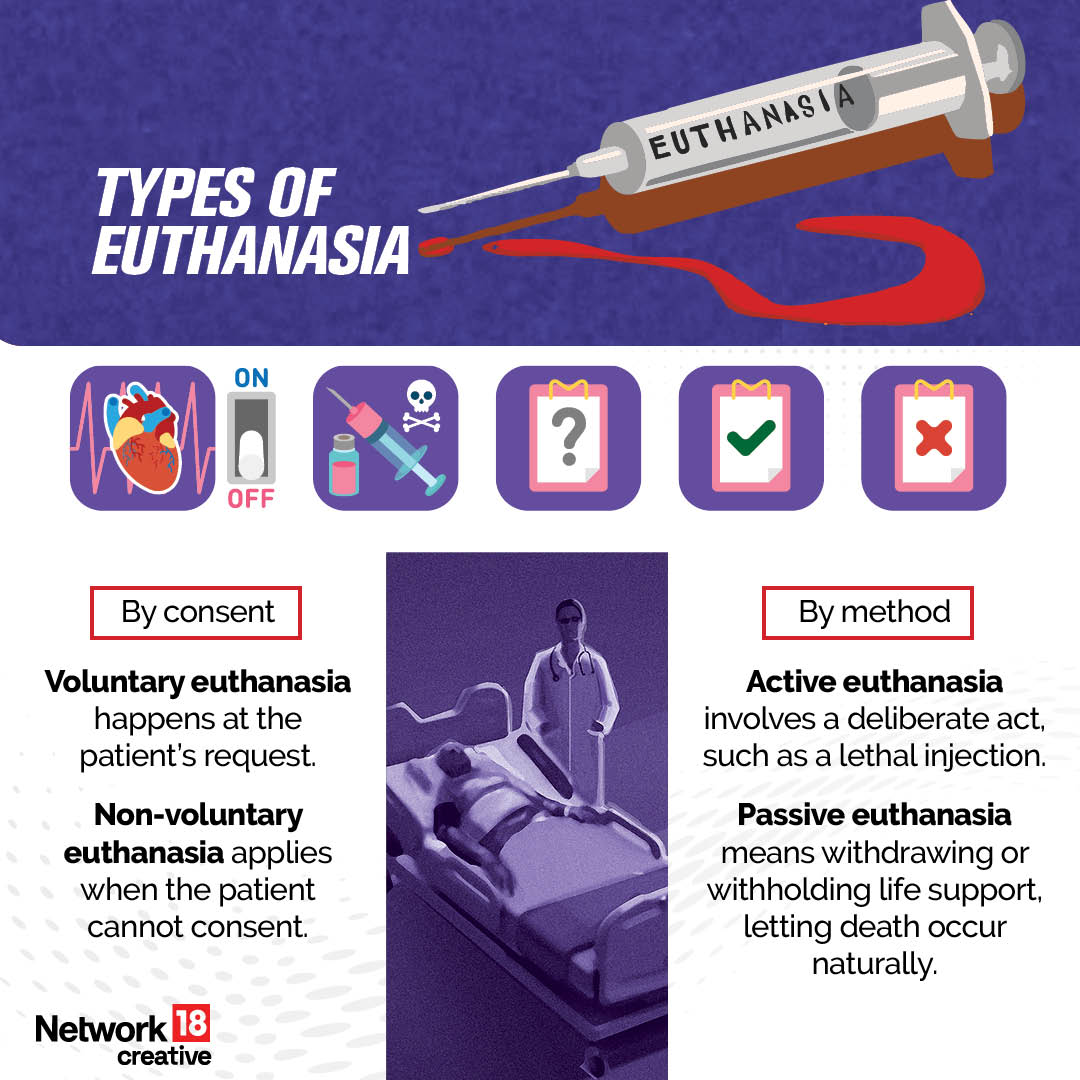
Canada first legalised euthanasia in 2016 for terminally ill patients. The law was expanded in 2021 to include those with serious, chronic conditions that cause enduring suffering, even if death is not imminent. To qualify, applicants must be over 18, make a voluntary request, and demonstrate an incurable illness leading to an advanced, irreversible decline, with approval from two independent medical professionals.
In 2023 alone, more than 15,000 Canadians chose assisted death, accounting for nearly 5% of all deaths in the country.
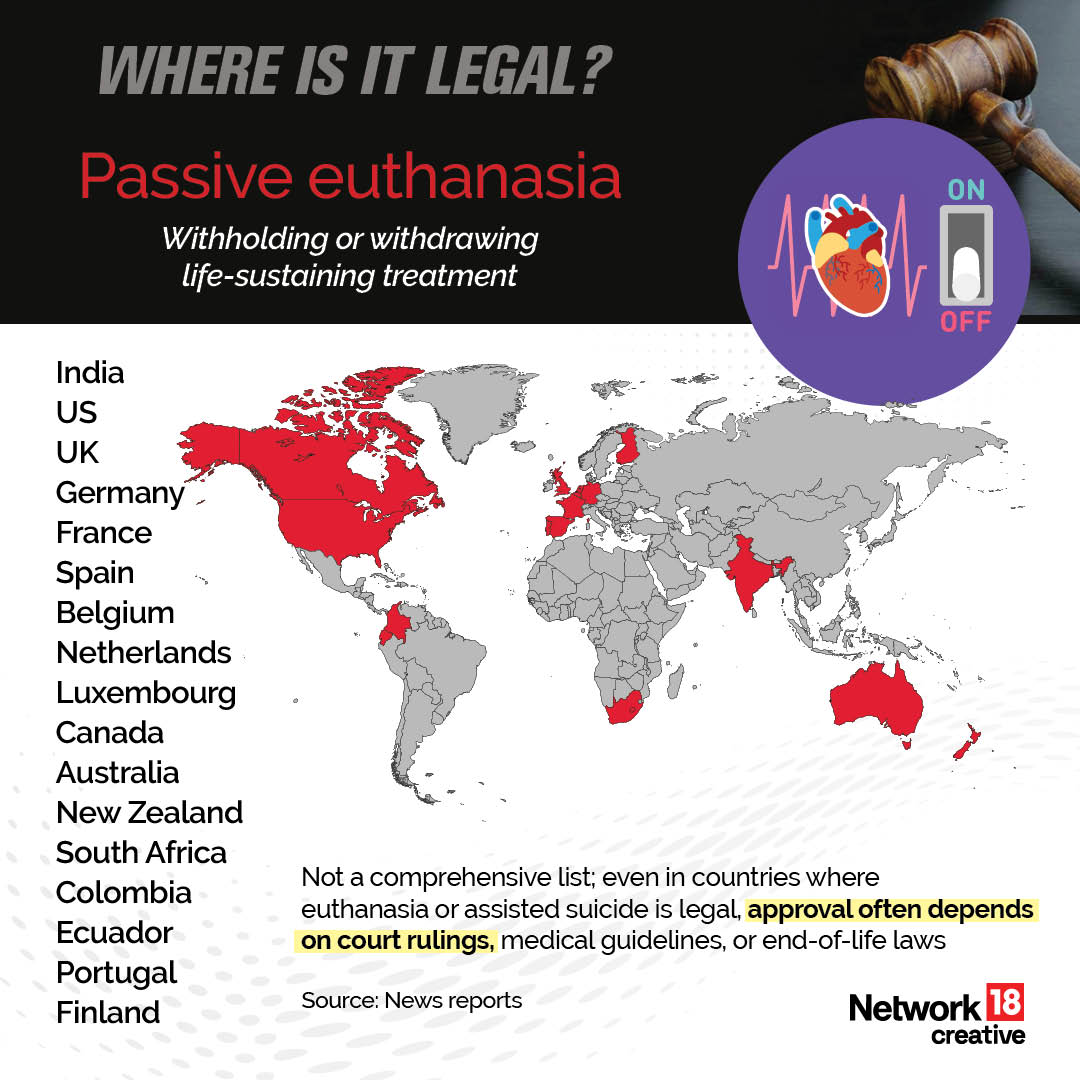
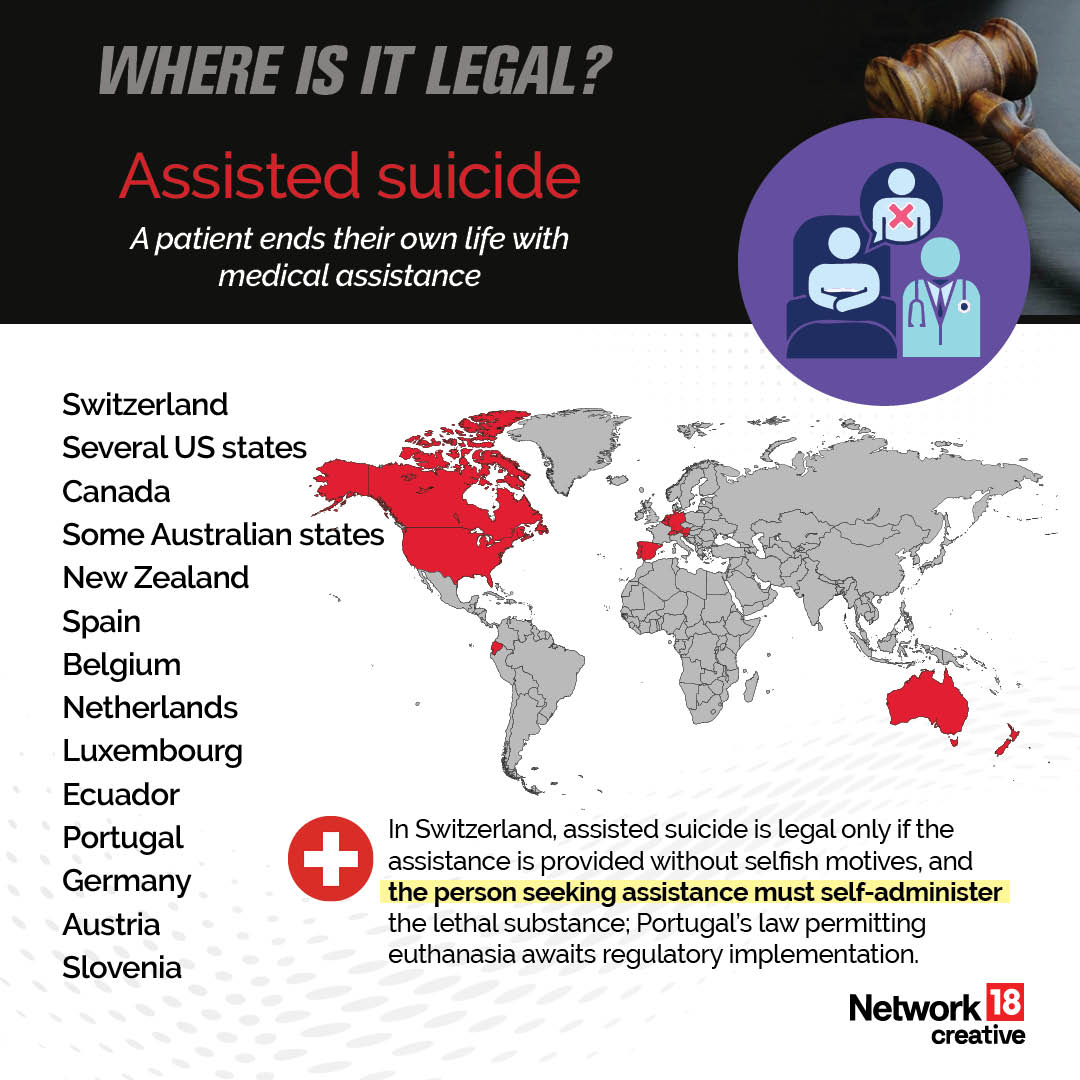
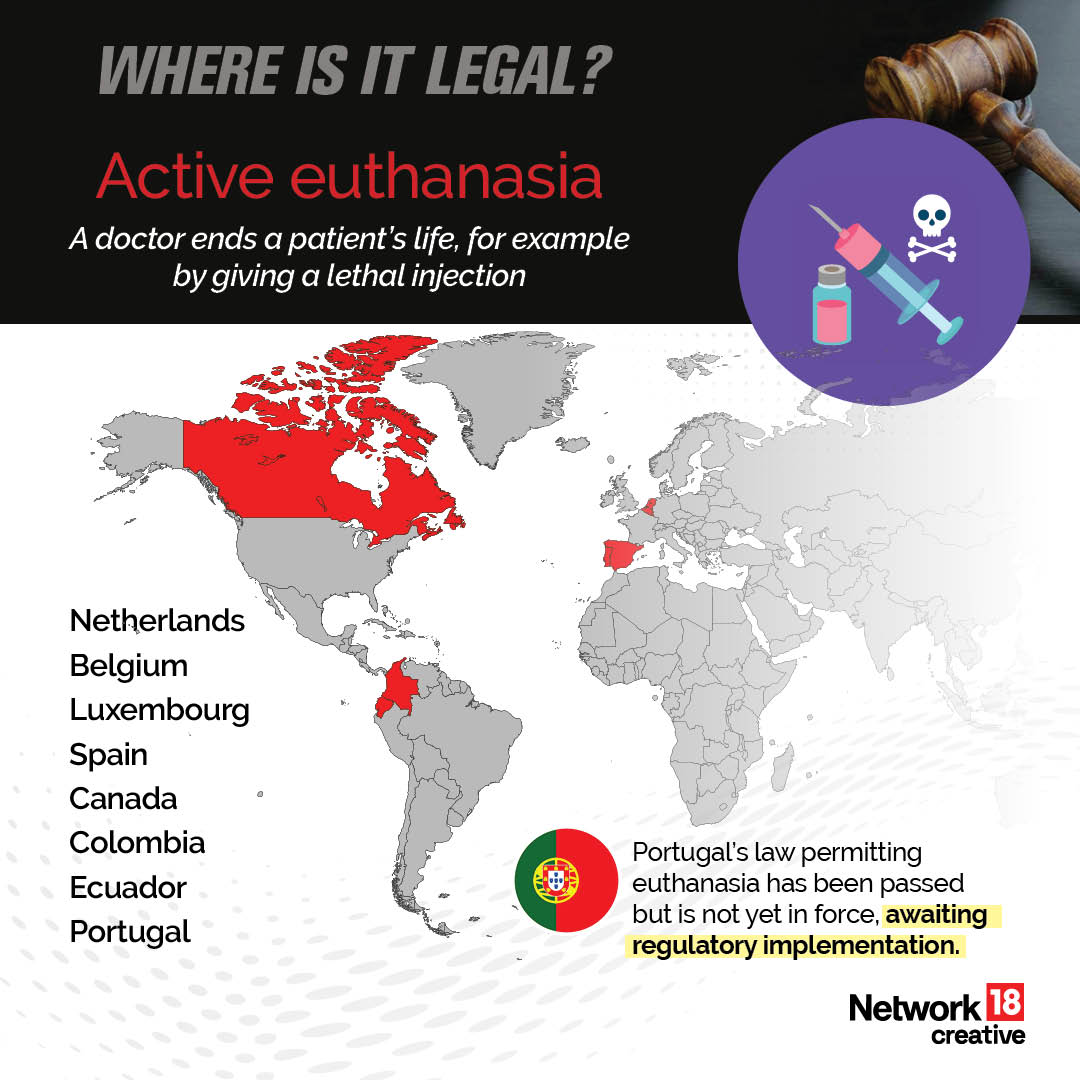
Globally, the laws remain a patchwork: active euthanasia is legal in the Netherlands, Belgium, Luxembourg, Spain, Colombia, and a handful of others, while assisted suicide is permitted in Switzerland, several US states, parts of Australia, and New Zealand. Passive euthanasia — withdrawal of life support — has wider acceptance, including in India, where a 2018 Supreme Court ruling allowed it under strict conditions. Yet in many societies, the moral, religious, and ethical questions remain unresolved.
ALSO READ | Long COVID is more than fatigue, our new study suggests its impact is similar to stroke or Parkinson’s
Diagnosed with dementia in 2021 and also living with Parkinson’s disease, Munsch, an Order of Canada honouree with a star on the country’s Walk of Fame, has been approved under Canadian law for medically assisted dying, commonly known as MAiD. In an interview with The New York Times Magazine, he spoke about what that decision means. "I can’t drive, I can’t ride a bicycle, I can’t write. So it’s been really whittling away on who I thought I was," he said. "My stories, strangely enough, are all there. The stories will be the last thing to go, I think."

For Munsch, the choice of when to leave will come, as he put it, "when I start having real trouble talking and communicating. Then I’ll know." His decision is influenced in part by watching his brother die of ALS, or Lou Gehrig’s disease.
Euthanasia refers to a doctor actively ending a patient’s life, often through a lethal injection, while assisted suicide allows the patient to administer prescribed medication themselves. Canada permits both, setting it apart from many countries that only allow one or prohibit both.

Canada first legalised euthanasia in 2016 for terminally ill patients. The law was expanded in 2021 to include those with serious, chronic conditions that cause enduring suffering, even if death is not imminent. To qualify, applicants must be over 18, make a voluntary request, and demonstrate an incurable illness leading to an advanced, irreversible decline, with approval from two independent medical professionals.
In 2023 alone, more than 15,000 Canadians chose assisted death, accounting for nearly 5% of all deaths in the country.



Globally, the laws remain a patchwork: active euthanasia is legal in the Netherlands, Belgium, Luxembourg, Spain, Colombia, and a handful of others, while assisted suicide is permitted in Switzerland, several US states, parts of Australia, and New Zealand. Passive euthanasia — withdrawal of life support — has wider acceptance, including in India, where a 2018 Supreme Court ruling allowed it under strict conditions. Yet in many societies, the moral, religious, and ethical questions remain unresolved.
ALSO READ | Long COVID is more than fatigue, our new study suggests its impact is similar to stroke or Parkinson’s
/images/ppid_59c68470-image-175819752864296977.webp)

/images/ppid_a911dc6a-image-177062212972356582.webp)
/images/ppid_a911dc6a-image-177062216978882723.webp)
/images/ppid_a911dc6a-image-17706221006681377.webp)
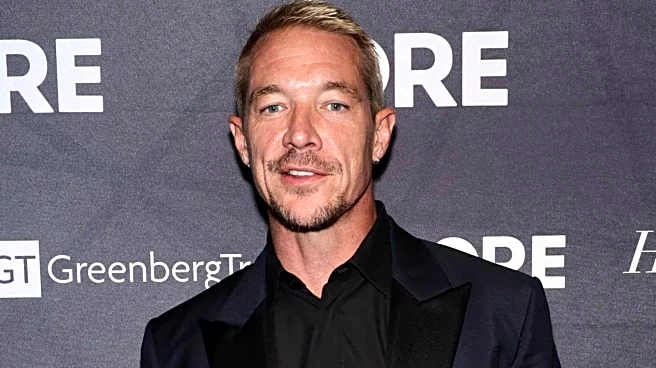



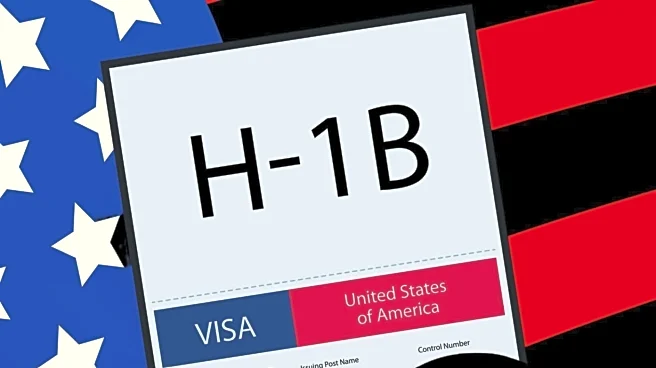
/images/ppid_59c68470-image-177062268887237146.webp)
/images/ppid_59c68470-image-177062262782119360.webp)
/images/ppid_59c68470-image-177062252668219495.webp)
/images/ppid_59c68470-image-177062265473135259.webp)
/images/ppid_59c68470-image-177062259687794537.webp)
/images/ppid_59c68470-image-177062256143028928.webp)